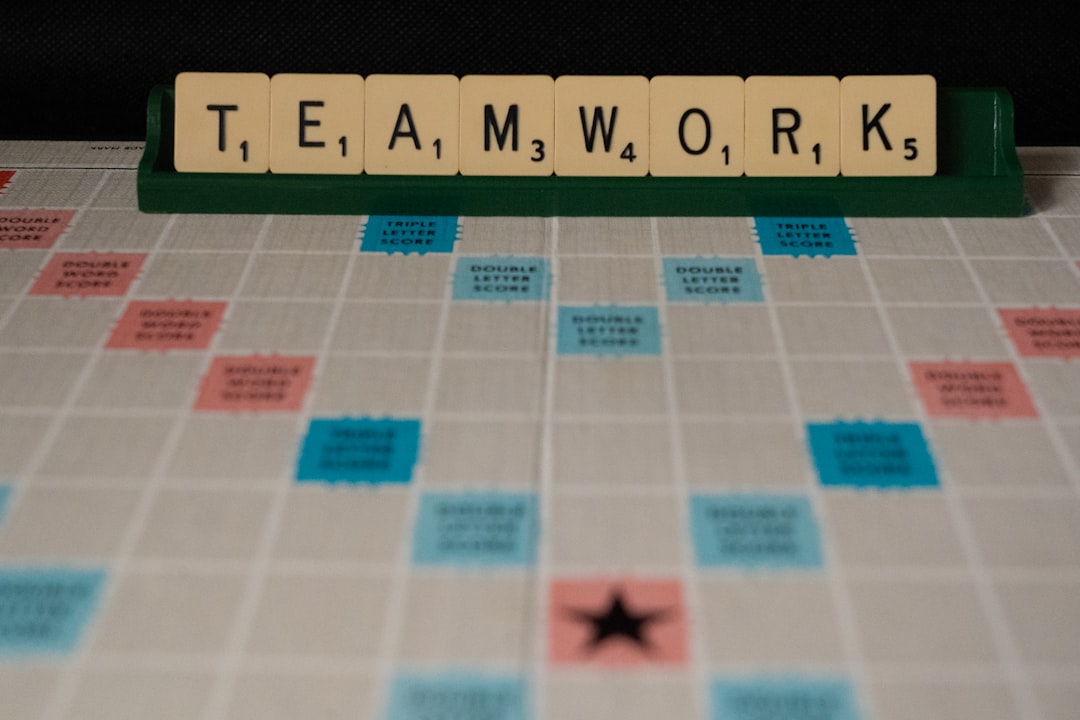Unlock Freedom with Must Read Books and Must Have Apps

Why Books and Apps Matter for Digital Nomads
The nomadic lifestyle is built on two simple ideas: the freedom to work from anywhere and the ability to keep moving without losing momentum. Those ideas sound effortless, but the reality is a constant balancing act between curiosity, logistics, and productivity. Books and apps act as the twin engines that keep that balance in check.
A good book provides the mental framework that shapes how you think about work, travel, and personal growth. It offers stories of people who have walked the same path, research‑backed strategies, and timeless principles that survive the next change in technology.
An app, on the other hand, translates those principles into day‑to‑day actions. It reminds you to pay a bill, helps you find a coworking space, or tracks the miles you’ve run on a mountain trail. When the right book meets the right app, the result is a feedback loop: ideas inspire action, and action refines ideas.
For anyone who wants to truly unlock freedom—whether you’re a seasoned nomad or just testing the waters—having a curated set of must‑read books and must‑have apps is the fastest way to shorten the learning curve and avoid costly mistakes.
Must Read Books for Freedom Seekers
Books are the low‑tech, high‑impact tools that stay with you even when you’re offline in a remote cabin. Below is a carefully chosen collection that covers mindset, practical skills, and stories of people who have turned nomadic dreams into sustainable realities.
Classic Foundations
-
“The 4‑Hour Workweek” by Timothy Ferriss – Often the first book that introduces the concept of lifestyle design, Ferriss shows how to automate income, outsource routine tasks, and negotiate remote work agreements. The case studies and “mini‑retirements” concept have inspired a generation of location‑independent professionals.
-
“Vagabonding: An Uncommon Guide to the Art of Long‑Term Travel” by Rolf Potts – Potts focuses on the philosophical side of long‑term travel. He argues that travel is not a vacation but a way of living, and he offers practical steps for financing, planning, and staying mentally resilient on the road.
-
“The Art of Travel” by Alain de Botton – A philosophical exploration of why we travel, de Botton blends literature, psychology, and personal anecdote to help readers understand the deeper motivations behind wanderlust.
Modern Manifestos
-
“Remote: Office Not Required” by Jason Fried & David Heinemeier Hansson – Written by the founders of Basecamp, this book makes the case that remote work is not a perk but a fundamental shift in how we design organizations. It includes real‑world policies that can be adopted by any team.
-
“Digital Nomad Handbook” by Lonely Planet – A practical field guide that covers visas, coworking spaces, health insurance, and community building. It is updated regularly to reflect changing immigration policies and emerging digital hubs.
-
“The 100‑Day Startup” by Pieter Levels – Levels, the creator of Nomad List and Remote OK, shares his “build‑launch‑iterate” method for launching a location‑independent business in just 100 days. The book is packed with actionable templates and tools.
Practical Guides
-
“Financial Freedom: A Proven Path to All‑You‑Can‑Dream Lifestyle” by Grant Sabatier – Sabatier outlines a step‑by‑step plan for building passive income streams, optimizing tax strategies, and achieving financial independence—key pillars for any nomad who wants to sustain long‑term travel.
-
“Deep Work: Rules for Focused Success in a Distracted World” by Cal Newport – Newport’s research on concentration is essential for nomads who must fight the lure of new cities, time zones, and endless notifications. The book offers concrete rituals to protect deep work time.
-
“The Minimalist Home” by Joshua Becker – Though aimed at homeowners, Becker’s principles of decluttering, intentional ownership, and simplifying daily routines translate directly to a nomadic lifestyle where every item you carry must earn its keep.
How to Choose the Right Book
-
Identify the gap – Are you looking for mindset shifts, business models, or logistical advice? Pick a book that directly addresses that gap.
-
Check the publication date – The nomadic world evolves quickly. For topics like visa policies or remote‑work tools, prioritize books published within the last three years.
-
Read reviews and sample chapters – A quick skim of the table of contents or a few reviews can save you from investing time in a book that doesn’t match your learning style.
-
Pair with an action plan – After each chapter, write down one concrete step you will try in the next week. This bridges theory and practice.
Must Have Apps for the Nomadic Lifestyle
If books give you the map, apps are the compass, the fuel gauge, and the emergency kit. Below is a toolbox of apps that cover communication, finance, productivity, travel logistics, health, and security. Each category includes the top three choices, why they stand out, and how to integrate them into a seamless workflow.
Communication and Collaboration
-
Slack – The industry standard for team messaging. Its ability to create channels for projects, integrate bots, and sync with Google Drive makes it indispensable for remote teams.
-
Zoom – Reliable video conferencing with breakout rooms, screen sharing, and a mobile‑first experience. Essential for client calls, webinars, and virtual co‑working sessions.
-
WhatsApp – Ubiquitous worldwide, especially useful for quick chats with local contacts, host families, or service providers who may not use email.
Integration tip: Connect Slack with Google Calendar so meeting reminders appear as channel messages. Use Zoom’s “schedule for Slack” integration to create instant meeting links without leaving the chat.
Finance and Money Management
-
TransferWise (now Wise) – Low‑cost international transfers with real‑time exchange rates. Ideal for freelancers who receive payments in multiple currencies.
-
Revolut – A multi‑currency account that offers a physical card, budgeting analytics, and cryptocurrency trading. Its travel insurance add‑on is a handy backup.
-
YNAB (You Need A Budget) – A proactive budgeting tool that forces you to allocate every dollar before you spend it. Great for tracking variable income streams common among nomads.
Integration tip: Link Wise and Revolut to automatically move funds between accounts based on the currency you’ll need that month. Export YNAB reports to Google Sheets for deeper analysis.
Productivity and Time Management
-
Notion – All‑in‑one workspace for notes, databases, task boards, and knowledge bases. Its flexibility allows you to build a personal wiki that includes travel itineraries, client pipelines, and habit trackers.
-
Todoist – A lightweight task manager with natural language input (“Tomorrow at 9am call client”) and project labels. Syncs across all devices, making it perfect for on‑the‑go to‑do lists.
-
RescueTime – Runs in the background and reports how you spend your time on apps and websites. Use the data to identify distractions and protect deep work blocks.
Integration tip: Embed Notion pages inside Todoist as project overviews. Use RescueTime’s weekly summary to adjust your Notion habit tracker.
Travel Logistics
-
Nomad List – Community‑driven database of cities rated for cost of living, internet speed, safety, and visa requirements. Use the filters to find your next base.
-
Google Maps – Offline maps, public transit schedules, and real‑time traffic. Download city maps ahead of time to avoid data charges.
-
Airbnb – Short‑term rentals with flexible cancellation policies. Use the “Instant Book” filter for quick decisions when you’re on a tight schedule.
Integration tip: Export your top five city choices from Nomad List into a Notion table that includes visa requirements, average rent, and coworking space options. Link each entry to the corresponding Google Maps location.
Health and Wellbeing
-
MyFitnessPal – Calorie tracking, macro counting, and a massive food database. Helpful for maintaining nutrition when you’re eating out in unfamiliar cuisines.
-
Headspace – Guided meditation and mindfulness exercises that work offline after the initial download. Use short 5‑minute sessions to reset after jet lag.
-
First Aid by Red Cross – Offline medical reference with step‑by‑step instructions for common injuries and illnesses. A lifesaver when you’re far from a clinic.
Integration tip: Set daily reminders in Todoist to log meals in MyFitnessPal and do a 5‑minute Headspace session before work. Keep First Aid bookmarked on your home screen for quick access.
Security and Privacy
-
ExpressVPN – Fast, reliable VPN with servers in 94 countries. Essential for protecting your data on public Wi‑Fi and accessing geo‑restricted services.
-
1Password – Secure password manager that syncs across devices. Generates strong passwords and stores passport scans, insurance documents, and travel itineraries.
-
Signal – End‑to‑end encrypted messenger for private conversations with clients and friends.
Integration tip: Use ExpressVPN’s “auto‑connect on Wi‑Fi” setting to ensure you’re always protected. Store all sensitive PDFs in 1Password’s secure notes section for easy retrieval.
Putting It All Together: A Daily Workflow for Nomads
Below is a sample day that demonstrates how to weave books, apps, and habits into a fluid routine. Adjust the timings to match your time zone and personal rhythm.
-
Morning Reset (7:00‑7:30)
- Open Headspace for a 5‑minute meditation.
- Review the day’s tasks in Todoist and note any high‑priority items.
-
Deep Work Block (7:30‑10:30)
- Activate ExpressVPN to secure the connection.
- Use RescueTime to stay aware of website usage.
- Reference relevant chapters from a current book (e.g., “Deep Work”) for focus strategies.
-
Client Calls (10:30‑11:30)
- Schedule meetings in Zoom directly from Slack.
- Keep a Notion page open with meeting notes template.
-
Lunch & Local Exploration (12:00‑13:30)
- Open Google Maps offline to find nearby eateries.
- Log food in MyFitnessPal.
-
Admin & Finance (13:30‑14:30)
- Transfer funds using Wise or Revolut.
- Update YNAB with new income/expenses.
-
Learning & Inspiration (15:00‑16:00)
- Read a chapter from a chosen book (e.g., “The 100‑Day Startup”).
- Take notes in Notion, linking concepts to current projects.
-
Afternoon Collaboration (16:00‑18:00)
- Respond to messages in Slack and WhatsApp.
- Update project status in Notion.
-
Evening Wind‑Down (19:00‑20:00)
- Review tomorrow’s tasks in Todoist.
- Perform a quick check of travel plans in Nomad List and Airbnb if a move is upcoming.
-
Night Routine (22:00‑22:30)
- Log sleep hours in Headspace or a habit tracker.
- Save any new passport scans or insurance PDFs in 1Password.
By structuring your day around a handful of core apps and supplementing with insights from books, you create a self‑reinforcing system that reduces decision fatigue and keeps you moving toward greater freedom.
Beyond Books and Apps: Podcasts and Online Courses
While books give depth and apps give immediacy, podcasts and online courses fill the gaps between them, delivering bite‑size wisdom and hands‑on skill building.
-
Podcast: “The Remote Show” – Interviews with remote founders, productivity hacks, and community building tips. Great for listening during commutes or while exercising.
-
Podcast: “Zero To Travel” – Focuses on travel logistics, visa hacks, and minimalist packing. Episodes often feature real‑world case studies from listeners.
-
Online Course: “Digital Nomad Masterclass” on Udemy – Covers legal considerations, tax compliance, and building a location‑independent business. Includes downloadable templates for contracts and invoicing.
-
Online Course: “Productivity for Remote Workers” on Coursera – Offers evidence‑based techniques for time blocking, managing distractions, and using collaboration tools effectively.
Incorporate a short listening session (15‑20 minutes) into your morning routine, and schedule one hour each week for a course module. This keeps the learning loop active without overwhelming your schedule.
Curating Your Personal Library
Your personal library should evolve as your journey progresses. Here’s a method to keep it relevant and actionable:
-
Create a Notion database titled “Nomad Library.” Add fields for Title, Author, Category, Key Takeaway, Action Item, and Completion Status.
-
After each reading session, fill in the “Key Takeaway” and write a concrete “Action Item” (e.g., “Set up automated invoicing in FreshBooks”).
-
Review the database monthly and move completed books to an “Archive” section. Highlight any recurring themes that may indicate an area for deeper study.
-
Rotate books based on upcoming challenges. If you are about to move to a new country, prioritize books on visas and cultural adaptation.
By treating your library as a living project, you ensure that every book you finish translates into measurable progress.
Final Thoughts
Freedom for digital nomads is not a myth; it is a skill set that can be learned, practiced, and refined. The right combination of books, apps, podcasts, and courses provides the mental models and practical tools needed to navigate an ever‑changing landscape of work, travel, and personal growth.
Start by selecting one book that resonates with your current challenge and pair it with a core set of apps that address communication, finance, and productivity. Build a daily workflow that integrates reading, action, and reflection. Expand your knowledge through podcasts and online courses, and keep your personal library organized so that every insight becomes an actionable step.
When you consistently apply these resources, you will find that the obstacles that once felt like roadblocks turn into stepping stones. The world becomes a network of possibilities rather than a series of constraints, and the freedom you seek becomes not just a destination but a daily reality.
Random Posts

Explore Africa’s Best Cities for Nomadic Professionals
Discover Africa’s top cities where fast internet, vibrant coworking hubs, affordable living and welcoming visa options let digital nomads thrive while soaking up culture and natural beauty.
2 months ago

Smart Finance Tax and Legal Strategies for Nomads Plus Health and Travel Insurance Plans
Discover how digital nomads can protect earnings and stay compliant with smart tax residency, corporate structures, and the right health and travel insurance, so you can roam worry-free.
1 month ago

Top Digital Nomad Hotspots and Visa Guide
Discover the world’s top digital nomad hotspots and the visas that let you stay longer. Get quick insights on cost of living, internet quality, entry permits and tax basics for remote work.
3 weeks ago

The Ultimate Nomad Toolkit Apps Books Podcasts and Blogs
Discover the essential toolkit for digital nomads: top apps for communication, finance and productivity, must-read books, inspiring podcasts and helpful blogs, all organized to boost flexibility and confidence on the road.
3 weeks ago

Spain for Digital Nomads Safety Secrets and Lifestyle Hacks
Discover Spain’s top safety tips and lifestyle hacks for digital nomads, from secure coworking spots and smart travel tricks to local customs that keep you productive and stress free
2 weeks ago
Latest Posts

Essential Software Every Remote Professional Should Use
Master remote work with essential tools: instant messaging like Slack, high definition video calls such as Zoom, and asynchronous voice apps. Streamline communication, stay connected and boost productivity.
1 day ago

Mastering Remote Work Productivity for Digital Nomads and Freelancers
Learn proven habits, tools, and tactics that help digital nomads and freelancers stay focused, deliver quality work, and maintain a sustainable lifestyle while traveling the world.
1 day ago

Tech‑Friendly European Towns Perfect for Remote Living
Discover Europe’s best small towns where fast internet, affordable living and vibrant tech communities let you work remotely while soaking up historic charm, lakeside views or mountain air.
1 day ago